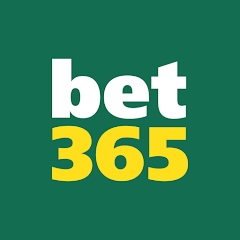The Beginner’s Guide to Different Types of Horse Racing Bets
Horse racing is an exciting sport that has captivated fans worldwide for centuries. Along with the thrill of watching horses race to the finish line, betting adds an extra layer of excitement for many. If you’re new to horse racing and want to get started, understanding the different types of horse racing bets is essential. This beginner’s guide will introduce you to the various betting types, including win, place, and show, so you can confidently place your wagers.

- Horse Racing Odds: The odds determine the payout on a winning bet. The lower the odds, the more likely the horse is to win, but the payout will be smaller. Conversely, higher odds offer larger payouts but come with greater risk.
- The Payout: Payouts in horse racing are calculated based on the odds of the horse when the bet is placed and the total amount of money wagered on all horses in the race.
- The Racing Form: This is a publication or guide that provides vital information on horses, jockeys, and trainers, including past performances, which can help you make informed betting decisions.
Now that you understand some basic betting principles, let’s explore the most common types of horse racing bets.
- Example: You place a win bet on Horse A. If Horse A finishes first, you win. If Horse A finishes second or lower, you lose the bet.
- Payout: Since you are betting on the winner of the race, the payout is usually higher compared to other straight bets like place or show. However, this bet is also riskier because the horse must win the race for you to collect a payout.
- Example: You place a place bet on Horse B. If Horse B finishes in first or second place, you win. If Horse B finishes third or worse, you lose the bet.
- Payout: The payout for a place bet is lower than a win bet because you have two possible outcomes that result in a win. However, this type of bet is considered safer for beginners, as it gives you more flexibility.
- Example: You place a show bet on Horse C. If Horse C finishes in first, second, or third place, you win. If Horse C finishes fourth or worse, you lose the bet.
- Payout: Show bets generally offer lower payouts compared to win or place bets since the chances of winning are higher. However, it’s a great option for beginners who are still learning the ropes and want to minimize risk.
- Example: You place an exacta bet on Horse D to finish first and Horse E to finish second. If the race ends with Horse D first and Horse E second, you win. If they finish in any other order, you lose the bet.
- Payout: Exacta bets have higher payouts than straight bets because they’re more difficult to win, as the horses must finish in the exact order you predicted.
- Example: You place a quinella bet on Horse F and Horse G. If they finish first and second, in any order, you win.
- Payout: The payout for a quinella is typically lower than an exacta because the order of the horses doesn’t matter, making it slightly easier to win.
- Example: You place a trifecta bet on Horse H to finish first, Horse I to finish second, and Horse J to finish third. If the race ends in that exact order, you win.
- Payout: Trifecta bets offer significantly higher payouts than win, place, show, or exacta bets, but they are much more challenging to win due to the precise order required.
- Example: You place a superfecta bet on Horses K, L, M, and N to finish in the top four positions in that specific order. If the race ends exactly as you predicted, you win.
- Payout: Superfecta bets have the highest potential payouts among these bets because they are the hardest to win. However, they are also the riskiest, so beginners should be cautious when attempting these.
Popular Betting Platforms in Australia
When it comes to online horse racing betting in Australia, several betting platforms stand out due to their reputation, user experience, and range of offerings. Here are a few popular options:

TAB (Totalisator Agency Board)
TAB is one of the oldest and most trusted names in Australian horse racing. Its online platform provides users with access to live race streaming, comprehensive form guides, and a variety of betting options. Whether you’re betting on local or international races, TAB offers an intuitive experience that caters to both novice and seasoned punters.

UPCOZ
UPCOZ is known as the Ultimate Punters Challenge, offering a variety of horse racing betting options and flexible odds. Its platform provides live race updates, form analysis, making it popular among horse racing enthusiasts. A well-managed team is always listening to feedback, ensuring UPCOZ remains a top choice for punters.

Sportsbet
Sportsbet has gained immense popularity due to its wide variety of betting markets and promotions. Their online horse racing betting section provides live race updates, form analysis, and competitive odds, making it a go-to platform for horse racing enthusiasts. Sportsbet’s mobile app also allows users to place bets on the go, adding to its appeal.

UPC Showdown
UPC Showdown is a new, more responsible way to bet on horse racing and sports. Enter Showdowns to compete for pots that go off, pick the winners of each leg, and earn points for every correct selection. With simple betting options and a real-time leaderboard, you’ll play against other punters for top prizes. It’s horse racing or AFL/NRL Pick’em, with a fresh, engaging experience—while keeping responsible play at the forefront.

Bet365
Bet365 is globally renowned for its comprehensive sports betting platform, and horse racing is no exception. With live streaming of races, real-time odds, and a wealth of betting options, Bet365 caters to both casual bettors and high-rollers. It also provides detailed race statistics, helping users make informed betting decisions.

Ladbrokes
Known for its user-friendly interface and innovative features, Ladbrokes is another leading player in the Australian horse racing scene. Their horse racing online platform offers detailed information on upcoming races, betting odds, and exclusive promotions like “Odds Boost” to enhance the betting experience.
These betting platforms offer excellent customer support, multiple deposit and withdrawal methods, and safe betting environments, making them reliable options for those interested in online horse racing betting Australia.

Horse Ownership
Owning a racehorse can be a rewarding journey, offering a sense of pride and a unique connection to the racing community. There’s the satisfaction of watching your horse compete, the camaraderie shared with fellow owners, and the anticipation of each event. Whether you’re celebrating a strong finish or simply appreciating the dedication it takes to prepare a horse for the track, the experience can be truly memorable.
On the other hand, horse ownership comes with challenges that can dampen the enthusiasm. Unexpected setbacks like injuries or training delays, along with the ongoing costs of care, require patience and resilience. Even seasoned owners acknowledge that nothing is guaranteed, and success often depends on careful management and a bit of luck. Despite these hurdles, the commitment to seeing a horse reach its potential keeps many people deeply invested in ownership.
Fractional ownership offers a more accessible way to enjoy racehorse ownership without the usual financial barriers. Our bloodstock team handpick quality thoroughbreds from top sales worldwide, pairing each one with Group One-winning trainers across Australia. Each horse is split into 1,000 affordable units, ensuring both newcomers and seasoned enthusiasts can take part—without inflated markups. This model not only reduces the costs but also creates a community of owners who share in race day experiences, owners’ events, and the excitement of watching their horse compete.

miRunners opens the door to racehorse ownership at a more affordable level, making it possible for almost anyone to participate. Our bloodstock experts select top-quality thoroughbreds—yearlings and tried horses—from leading sales, pairing each one with Group One-winning trainers across Australia. Each horse is then divided into 1,000 units, eliminating excessive markups and ensuring genuine accessibility. You’ll also enjoy exclusive race day events and a warm community atmosphere, sharing the experience with fellow owners. Join miRunners to be part of a new approach that aims to make racehorse ownership a truly inclusive opportunity.
In Other News
Looking for more insights, updates, and behind-the-scenes stories from our favorite bookies? These blogs covers everything from tips on picking winners and upcoming promotions to exclusive interviews with industry insiders. Dive in and explore the latest posts below!